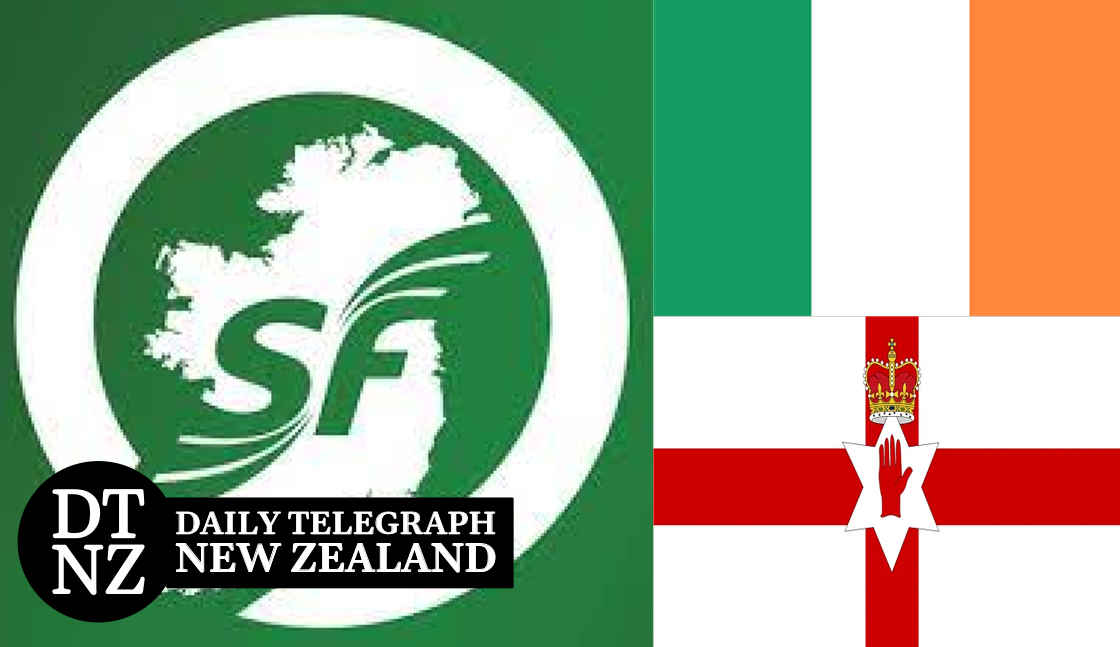
Sinn Fein’s Michelle O’Neill indicated that, when it comes to Northern Ireland’s potential reunification with the Republic, there will be no constitutional change until voters make their decision.
The Irish nationalist party Sinn Fein has secured a majority in the Northern Ireland Assembly for the first time, postulating its Vice President Michelle O’Neill to become First Minister.
The leader of the Democratic Unionist Party (DUP) Jeffrey Donaldson earlier conceded that the nationalists were on the way to securing a majority. Still, his party is refusing to join a new government in Northern Ireland unless the UK ditches post-Brexit trading rules with the European Union.
“It’s a defining moment for our politics and our people,” O’Neill said on Saturday. “I will provide leadership which is inclusive, which celebrates diversity, which guarantees rights and equality for those who have been excluded, discriminated against or ignored in the past.”
Earlier, O’Neill touted Northern Ireland’s May vote as “the election of a generation”, saying that it was “time for real change”.
This has been an historic election.
An election of real change.
I will lead the Sinn Féin team to Stormont on Monday, ready to get the Executive up and running right away.
To put money in people’s pockets.
To invest in our health service.
And to build a better future for all pic.twitter.com/orrFtCIVwl
— Michelle O’Neill (@moneillsf) May 7, 2022
Despite Sinn Fein vocally backing reunification between Northern Ireland and the Republic of Ireland, the issue largely remained out of the spotlight during the 2022 campaign. According to O’Neill, there would be no constitutional change before voters decided on it.
Nonetheless, Sinn Fein President Mary Lou McDonald indicated that planning for a unification referendum could come within 5 years.
Making History
Sinn Fein’s looming victory in the Northern Ireland Assembly will mark a landmark occasion in the country. Since being formed as a Protestant-majority state in 1921, its assembly has been led by unionist parties pushing for closer ties with the United Kingdom.
The nationalist Sinn Fein enjoys close ties with the Irish Republican Army, a paramilitary group that has played a role in decades of violence between republican militants, Protestant loyalists, and the UK army and security forces. The conflict, lasting since the late 1960s, is commonly called the Troubles.
In 1998, the Catholic-Protestant conflict was put to an end when a power-sharing system was introduced and the Good Friday Agreement reached. The system envisaged that the jobs of first minister and deputy first minister were to be split between the biggest unionist and nationalist groups.
Brexit and Party Squabbles
Despite the power-sharing system, the Democratic Unionist Party (DUP), the largest unionist party, has argued it is not willing to serve under a Sinn Fein first minister, particularly before the post-Brexit trade rules between the UK and the EU are changed.
Under the trade agreement that was reached after Brexit, goods arriving into Northern Ireland from the rest of the United Kingdom are subject to customs and additional border checks. The goal of the arrangement – also known as the Northern Ireland Protocol – is to keep the border between Northern Ireland and Republic of Ireland (which is the member of the EU) open. Free movement within the Irish isle is also guaranteed by the Good Friday Agreement.
However, the protocol’s provisions do not sit well with unionists, who argue that they gravely damage trade and disrupt the supplies of goods between Northern Ireland and the rest of the UK.
Think for a moment what if Russia was training Scots and Irish as UK did in Ukraine. Karma is shit and it will break UK into pieces.